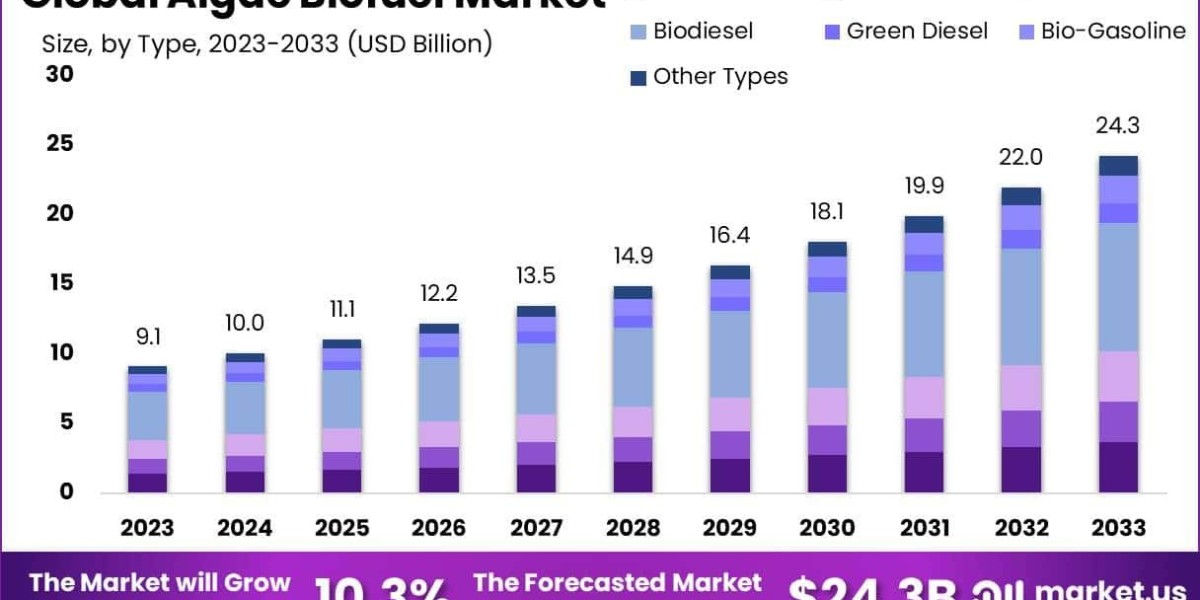The Global Algae Biofuel Market Size is expected to be worth around USD 24.3 Billion by 2033, from USD 9.1 Billion in 2023, growing at a CAGR of 10.3% during the forecast period from 2024 to 2033.
In 2025, the Algae Biofuel Market is gaining momentum in the aviation sector as airlines pursue sustainable fuel alternatives. Several airlines in North America and Europe have completed pilot flights powered by 100% algae-derived jet fuel blends. Joint ventures between algae producers and aviation companies are establishing dedicated production facilities near airports. Certification pathways are being streamlined by regulatory bodies like ASTM and ICAO, enabling commercial rollout by 2028.
The energy density, cold flow properties, and lifecycle emissions profile of algae jet fuel position it as a drop-in solution for sustainable aviation. With sustainability mandates intensifying, algae-based jet fuel is set to become a key contributor to industry decarbonization.
Click here for more information: https://market.us/report/algae-biofuel-market/
Emerging Trends
- Aviation-grade algae jet fuel certification, supported by ASTM and airline validation flights.
- Airport-adjacent production hubs, reducing transport costs and enabling logistics efficiency.
- JV partnerships between airlines and algae developers for captive supply agreements.
- Drop-in compatibility, enabling fuel blending and smooth integration into existing infrastructure.
Use Cases
- A regional airline completes a transcontinental flight using a 50% algae-jet fuel blend, reducing emissions by 45%.
- A consortium builds an algae fuel plant at a European airport, sourcing CO₂ from Tarmac operations.
- Biotech firms work with airlines to co-develop ASTM-approved bio-jet that meets kerosene standards.
- An airport fuels its ground service equipment using algae-derived diesel, reducing carbon footprint locally.






